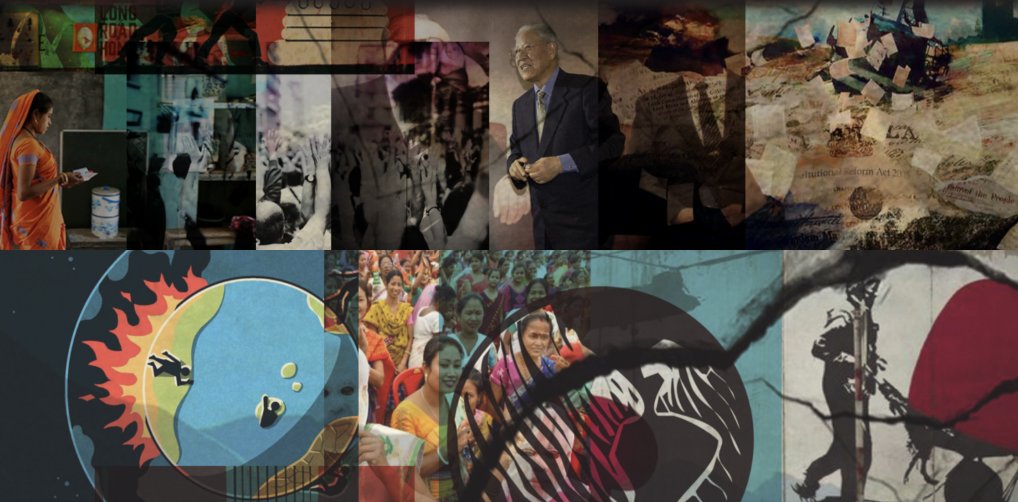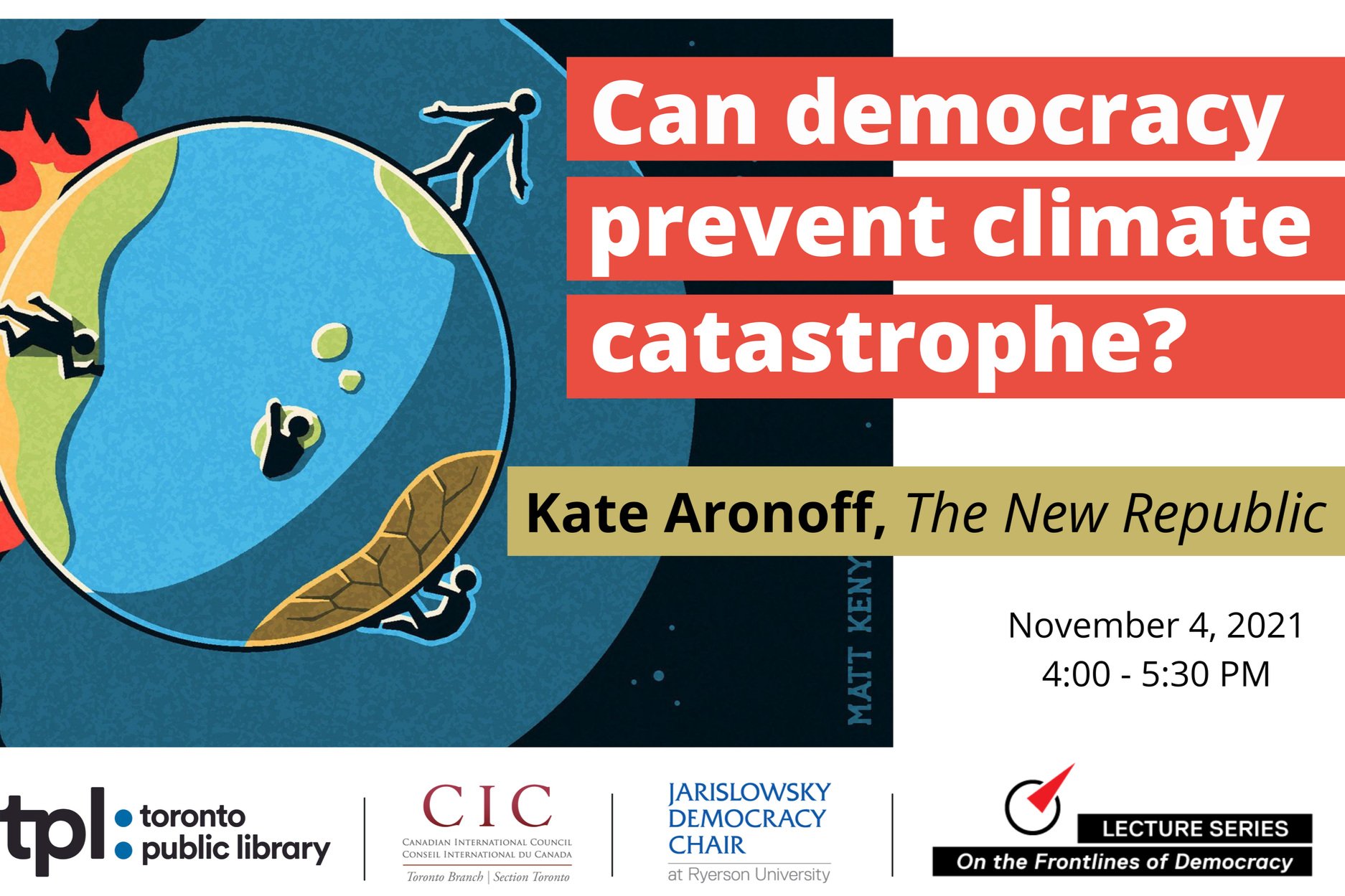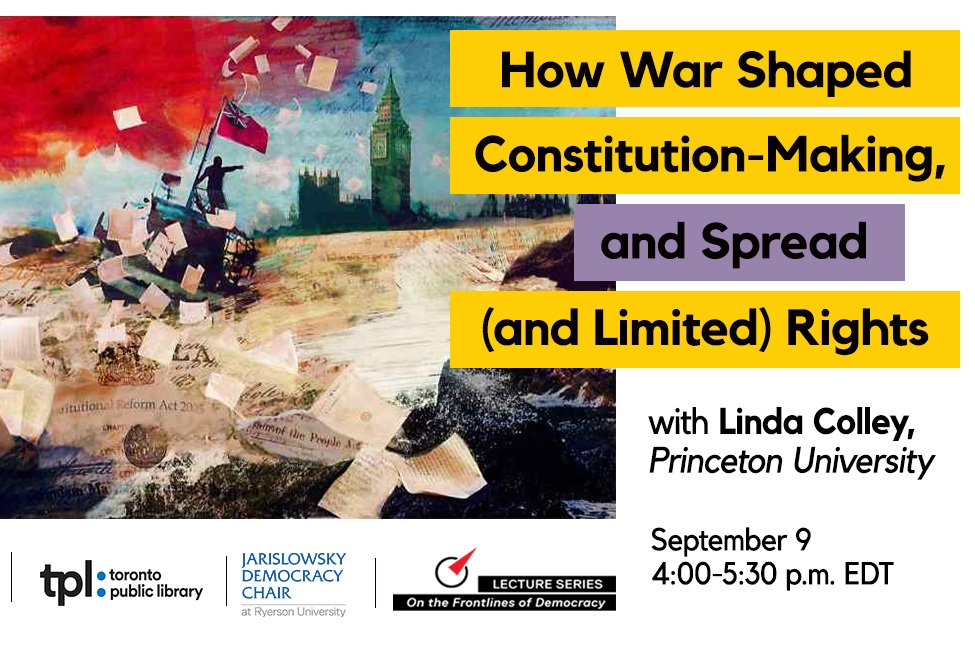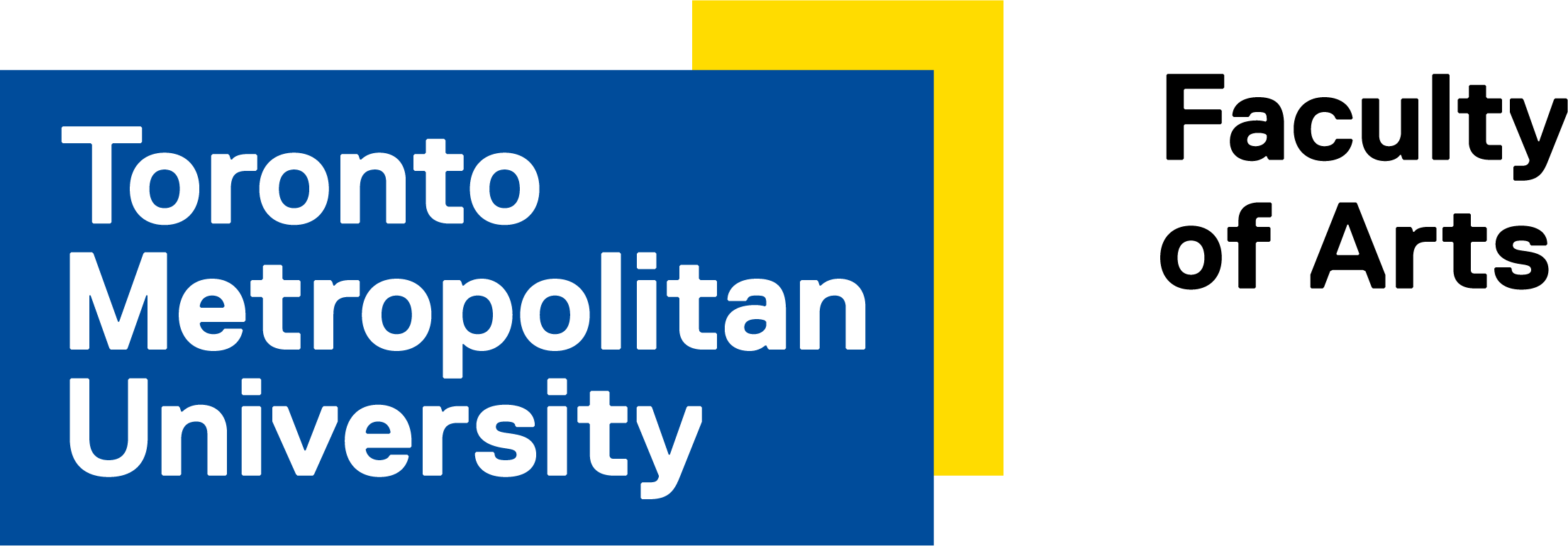
On The Frontlines of Democracy
Lecture Series
About
On the Frontlines of Democracy is a public lecture series to analyze the prospects of democracy in the twenty-first century.
Around the world, democracy faces serious challenges, old and new. Can we protect individual rights and the rule of law in an era of popular mistrust, severe partisanship and resurgent nationalism? How can our democracies reduce inequalities of power, wealth and status, defend deep diversity and confront climate change in the new digital age? Can we develop innovative strategies to revitalize civic engagement, empower public institutions and resist autocratic threats? How can we support the expansion of democracy, in an evolving post-western order, without committing the mistakes of the past?
Learn More
Barnett Rubin - Afghanistan: What Everyone Needs to Know
The rapid fall of Kabul in the summer of 2021, following the United States’ withdrawal of its military forces, stunned observers across the world. The establishment of the Islamic Republic of Afghanistan in 2004 expanded personal freedoms, social development and basic infrastructure in many urban areas. Yet disputed elections and endemic corruption undermined the promise of democracy and the rule of law.
Jayati Ghosh: How To Confront Global Inequalities
The Covid-19 pandemic has posed the greatest test of international solidarity in many decades. At the outset, the political leaders of many western democracies pledged, ‘we are all in this together’. Yet the pandemic has imposed a severely unequal toll within societies and across the world. In advanced industrialized democracies, Covid-19 has exposed the special vulnerability of the elderly, frontline workers with precarious contracts and inadequate social protection, and ethnic and racial minorities.
Anjana Ahuja - Spike: The Virus versus the People
The Covid-19 pandemic has cast a searing light on the fraught relationship between science, politics and democracy. On the one hand, scientists and public health specialists have developed novel vaccines and effective safety protocols with astonishing speed, saving the lives of millions in many western democracies.
Christophe Jaffrelot - Modi’s India: How Hindu nationalism has eroded the world’s largest democracy
India has long stood out as the most unlikely democracy in the world. Two centuries of British colonial rule had deepened absolute poverty, social inequalities and religious conflicts. Yet the secular 1950 Constitution granted universal adult suffrage, codified a wide range of civil liberties and political rights, and institutionalized many checks across a sprawling federal parliamentary democracy.
Kate Aronoff: Women Winning Office
The existential threat of catastrophic climate change is the greatest challenge facing humanity today. Surveys indicate broad public support for major policy changes exists in many countries around the world. Yet the political incentives, ideological divisions and time horizons of democratic politics also pose obstacles. Politicians remain wary of imposing short-term costs on their constituents, despite the destructive long-term ramifications of the status quo.
Charles Taylor: How Democracies Degenerate
Democracy represents a political ideal: popular self-rule. It envisions a political community of citizens empowered to participate in public life, choose their representatives and determine a common future. Yet the real history of modern democracies involves bitter struggles to extend civil liberties, political rights and social equality, and to expand the boundaries of nations, to realize this ancient ideal.
Linda Colley: How War Shaped Constitution-Making and Spread (and Limited) Rights
Around the world, constitutional democracies face mounting challenges. In many countries, the resurgence of nationalism and populism threatens civil liberties and political rights, especially of minorities. An exclusive conception of the people, and a growing belief that political majorities can act as they wish, tests the checks and balances that constrain executive power and the rule of law more broadly.
Rashid Khalidi: The Crisis of Arab Democracy and Palestine
Starting in the 1970s, many autocratic regimes in the world suffered mounting crises, inaugurating democratic transitions across Latin America, Sub-Saharan Africa and Asia. The Middle East and North Africa remained a regional anomaly, however, despite promising experiments in constitutional reform in the early twentieth century and parliamentary government in several countries after WWII.
The Persistent Crisis of Western Liberalism
The rise of populism in recent years, amid worsening economic inequalities, raised profound questions about the resilience of western liberal democracies. Brexit, the inauguration of Trump and growing political turmoil across Europe demonstrated their vulnerabilities. The COVID-19 pandemic has brutally exposed the failings of their underlying social contracts.
An American Reckoning
The 2020 US election raises profound questions for America. Despite fears of possible external interference, civic apathy and a raging pandemic, a groundswell of citizens, organizations and communities mobilized across the country. An historic percentage of voters cast their ballots in an election deemed the most secure in American history.
Anjana Ahuja - Spike: The Virus versus the People
Hong Kong’s anti-extradition movement took the world by storm, impressing and inspiring the global public with its energy, creativity and tenacity. For China’s rulers, 2019 was pivotal: the 30th anniversary of Tiananmen, the 70th of the Maoist revolution, and the 100th anniversary of the May 4th movement, which saw thousands of students take to the streets to denounce imperial aggression, traditional Confucian values and the corruption of the old regime.













